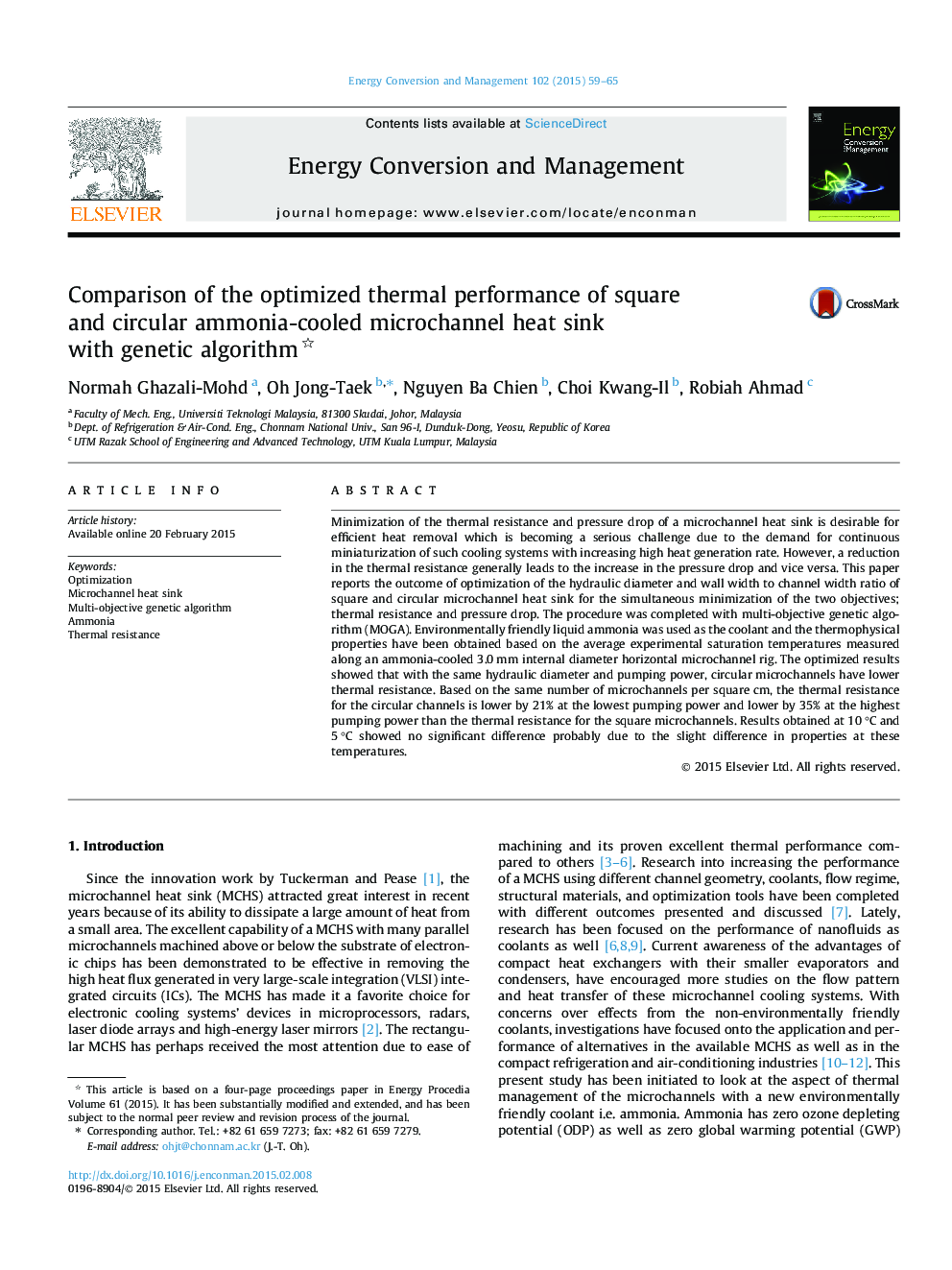| Article ID | Journal | Published Year | Pages | File Type |
|---|---|---|---|---|
| 763534 | Energy Conversion and Management | 2015 | 7 Pages |
•Simultaneous minimization of the thermal resistance and pressure drop is shown.•Genetic algorithm is capable of securing above objectives.•Experimental data using the microchannel heat sinks is limited.•Utilization of experimental data from ammonia-cooled microchannel which is scarce.•Outcomes present potentials for exploratory research into new coolants.
Minimization of the thermal resistance and pressure drop of a microchannel heat sink is desirable for efficient heat removal which is becoming a serious challenge due to the demand for continuous miniaturization of such cooling systems with increasing high heat generation rate. However, a reduction in the thermal resistance generally leads to the increase in the pressure drop and vice versa. This paper reports the outcome of optimization of the hydraulic diameter and wall width to channel width ratio of square and circular microchannel heat sink for the simultaneous minimization of the two objectives; thermal resistance and pressure drop. The procedure was completed with multi-objective genetic algorithm (MOGA). Environmentally friendly liquid ammonia was used as the coolant and the thermophysical properties have been obtained based on the average experimental saturation temperatures measured along an ammonia-cooled 3.0 mm internal diameter horizontal microchannel rig. The optimized results showed that with the same hydraulic diameter and pumping power, circular microchannels have lower thermal resistance. Based on the same number of microchannels per square cm, the thermal resistance for the circular channels is lower by 21% at the lowest pumping power and lower by 35% at the highest pumping power than the thermal resistance for the square microchannels. Results obtained at 10 °C and 5 °C showed no significant difference probably due to the slight difference in properties at these temperatures.
